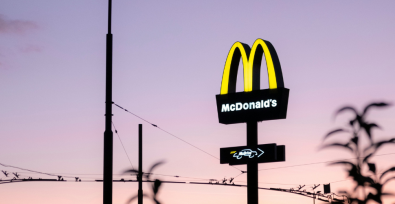More people are living in slavery today than at any other time in modern history. And according to a recent BBC report, far from being tucked away, it is often hiding in plain sight, even at your local McDonald’s.
Invisible handcuffs keeping victims in slavery
A Czech trafficking ring was recently uncovered in the U.K. after an investigation that spanned years. Victims had been trafficked into the country and were working under modern slavery at a McDonald’s and a pita bread factory. But obvious warning signs that things were not right were missed for at least four years by both employers, such as employees’ pay not going into their own bank accounts.
Dame Sara Thornton, the former independent anti-slavery commissioner said:
“It really concerns me that so many red flags were missed, and that maybe the companies didn’t do enough to protect vulnerable workers.”
Another obvious sign was the long hours victims were required to work, sometimes up to 30-hour shifts. According to one of the investigators, the traffickers basically “treated their victims like livestock” feeding them just enough “to keep them going.” When not at work victims were monitored by CCTV and cut off from the outside world as they were not allowed to use phones or the internet.
On top of that, none of them spoke English. It took one brave victim coming forward to start the investigation that eventually led to the 6-person trafficking ring being uncovered and arrested.
No escape, not even at home
Most of the victims were lured in with the false promise of a well-paid job in the U.K. under proper legal channels. But the reality of what they experienced once they arrived quickly veered into slavery. One survivor, Pavel, who worked 70-hour weeks at McDonald’s for years said he was given just a few pounds a day in cash out of his paycheck and that was it. The experience has left lasting scars.
Pavel said,
“You can’t undo the damage to my mental health, it will always live with me.”
The investigation reported that the gang confiscated all the victims’ passports, controlling them through fear and violence. Some did try to escape and return home but the traffickers were powerful people in their hometown. Those who escaped were turned in and made to come back to keep working.
New legislation and the “dirty list”
The report also highlighted that while human trafficking is the most reported form of modern slavery, it is far from the only one. Chloe Cranston from Anti-Slavery International listed some of the many other forms with debt bondage, forced labor, forced child marriage and child labor being some of the most common. Cranston also pointed out the most vulnerable sectors to modern slavery.
Cranston shared,
“Domestic workers and agricultural workers are two of the highest risk sectors…the protections they have through law are not protecting them enough.”
She highlighted that the E.U. recently passed two important pieces of legislation that come into force in 2027. One aims to hold companies accountable for the human rights abuses (which includes modern slavery) found in their supply chain. The other aims to stop the import and export of products made with forced labor.
Cranston pointed to countries like the U.S. and Brazil as good examples. Both countries already have legislation aimed at stopping goods made with forced labor from entering the market. And Brazil even has a “dirty list” that is a name and shame for companies found using forced labor in their supply chain which includes financial penalties.
We only know because of one victim’s courage
For those survivors of the Czech trafficking ring, it will take time for them to unpack and recover from what happened to them. And the only reason this trafficking ring was uncovered was that one victim found the courage to report it. Not because the employers or authorities noticed the glaring signs of modern slavery.
BBC investigative reporter John Ironmonger said,
“Traffickers are able to infiltrate some of the biggest brands. If victims are working at McDonalds or in the supply chains of major supermarkets, where else are they working?
There is a growing, global movement for governments to pass mandatory human rights and environmental due diligence legislation, and it needs more power. If successful, companies and governments would be required to enact preventative measures, conduct robust risk analyses, and face punishments for failing to prevent all human rights violations—including human trafficking and forced labor.
Join the movement today by signing our petition to always put people before profit!







Freedom United is interested in hearing from our community and welcomes relevant, informed comments, advice, and insights that advance the conversation around our campaigns and advocacy. We value inclusivity and respect within our community. To be approved, your comments should be civil.